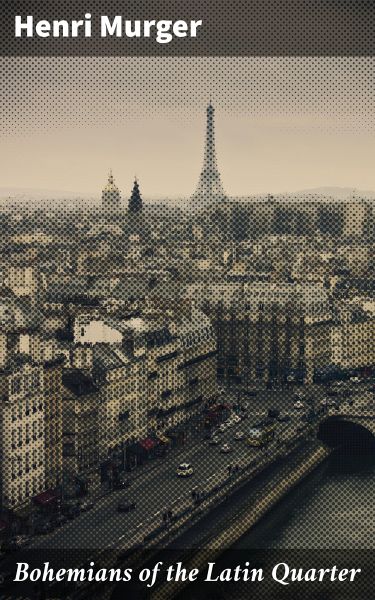
Bohemians of the Latin Quarter (eBook, ePUB)
Enriched edition. Exploring the Elemental Life of Parisian Bohemians
Kommentar: Lane, Alex / Redaktion: Good Press

PAYBACK Punkte
0 °P sammeln!
Henri Murger's "Bohemians of the Latin Quarter" offers a vivid portrayal of the artistic and bohemian life in Paris during the mid-19th century. Using a blend of sharp realism and romanticism, Murger presents a series of interconnected stories that encapsulate the struggles and aspirations of impoverished artists as they navigate love, poverty, and the search for meaning in a rapidly modernizing world. The narrative flows with a poetic spontaneity, infused with details that illuminate the vibrant yet harsh realities of bohemian culture. Significantly, the book is contextualized within the broa...
Henri Murger's "Bohemians of the Latin Quarter" offers a vivid portrayal of the artistic and bohemian life in Paris during the mid-19th century. Using a blend of sharp realism and romanticism, Murger presents a series of interconnected stories that encapsulate the struggles and aspirations of impoverished artists as they navigate love, poverty, and the search for meaning in a rapidly modernizing world. The narrative flows with a poetic spontaneity, infused with details that illuminate the vibrant yet harsh realities of bohemian culture. Significantly, the book is contextualized within the broader literary movement of Realism, serving as a precursor to later works that explore the lives of marginalized individuals in society. Henri Murger, a French poet and novelist, lived the very life he depicts, experiencing the bohemian lifestyle firsthand in the Latin Quarter of Paris. His own struggles with poverty and artistic ambition lend authenticity to the characters he created, as he sought to immortalize the transient yet passionate lives of his contemporaries. Murger's experiences not only shaped his perspectives on art and society but also influenced the Parisian literary scene, making him a key figure in pre-impressionist literature. "Bohemians of the Latin Quarter" is a must-read for anyone interested in the intersection of art, literature, and social commentary. It provides an unparalleled glimpse into the lives of artists whose stories reflect both the joys and sorrows of creativity. Readers will find themselves immersed in the vivid atmosphere of Paris, gaining insights into the enduring spirit of the bohemian lifestyle that continues to inspire generations. In this enriched edition, we have carefully created added value for your reading experience: - A succinct Introduction situates the work's timeless appeal and themes. - The Synopsis outlines the central plot, highlighting key developments without spoiling critical twists. - A detailed Historical Context immerses you in the era's events and influences that shaped the writing. - A thorough Analysis dissects symbols, motifs, and character arcs to unearth underlying meanings. - Reflection questions prompt you to engage personally with the work's messages, connecting them to modern life. - Hand-picked Memorable Quotes shine a spotlight on moments of literary brilliance. - Interactive footnotes clarify unusual references, historical allusions, and archaic phrases for an effortless, more informed read.
Dieser Download kann aus rechtlichen Gründen nur mit Rechnungsadresse in A, B, BG, CY, CZ, D, DK, EW, E, FIN, F, GR, H, IRL, I, LT, L, LR, M, NL, PL, P, R, S, SLO, SK ausgeliefert werden.













